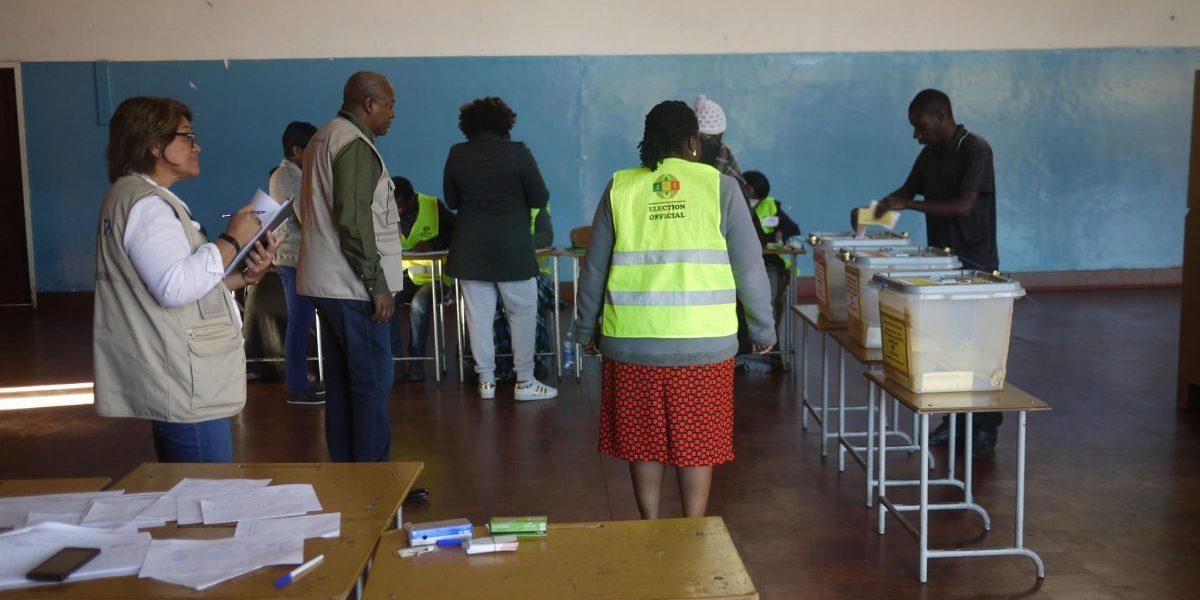Sixteen years later, turnout at the polls had plummeted from 95% to just 32%, according to the Electoral Institute of Southern Africa. Then, in 2000, the trend reversed. Participation at the polls rose progressively, starting with a referendum on a draft constitution and culminating two years later in mile-long lines outside ballot stations in the 2002 presidential elections.
What caused the shift? The emergence of a viable opposition, offering weary voters a prospect for change after 22 years of rule by the same party.
Voting patterns in Zimbabwe illustrate the bad news and the good news about democracy in Africa. The longer a party governs, the more disillusioned the polity becomes. But a change in the ruling party or the emergence of a viable opposition restores public trust in democracy. This is the key conclusion of Democracy and Electoral Alternation: Evolving African Attitudes, a study released by the Afro-barometer Project in April 2004. ‘The perceived extent of democracy declines with the passage of time since an electoral alternation (or, failing that, a multiparty transition),’ it found. ‘The more recent a turnover … the more positive people feel about democracy.’
The Afro-barometer, a project of the Institute for Democracy in South Africa, Ghana’s Center for Democratic Development and Michigan State University in the US, compared public opinion data about the demand for and supply of democracy in Africa over two periods of time: Round 1, involving 12 countries, from 1999-2001; and Round 2, involving 15 countries, from 2002-03.
Support for democracy as a political system rose by more than 10% in countries that had seen a change in ruling party – Mali and Lesotho, for example – between the two rounds of study. But support declined in eight countries – including Tanzania, South Africa and Botswana – where no change occurred.
The largest increase in perception took place in Ghana, where satisfaction with democracy rose 18%. Transparent elections in 2000 ushered in a new ruling party, increasing popular support and patience for economic reforms.
Nigeria, meanwhile, marked the other extreme. Satisfaction with democracy fell from 84% in January 2000, shortly after civilian rule was reinstated, to 35% in October 2003. The report suggested that Nigerians were dismayed by President Olusegun Obasanjo’s re-election. The study found that African citizens are becoming more realistic about what democracies can accomplish: ‘Perhaps they are recognizing, in the aftermath of transition euphoria, that real world democracies will always have imperfections.’ In Round 2, 37% of respondents characterized their system as ‘a democracy, but with minor problems’, whereas 27% of those surveyed in Round 1 thought they had ‘full democracy.’
Countries with a recent smooth electoral change of government viewed problems with democracy as ‘minor’. Conversely, in Malawi, President Bakili Muluzi’s failed attempts at an unconstitutional third term, corruption charges and food insecurity eroded the perceived extent of democracy by 24% from 1999 to 2003.
The study found that faith in democracy was a function of time lapsed since the most recent transition in government. It also concluded that political opinion in new African democracies evolves in a cycle. Introducing multiparty systems (even when transitions don’t happen) tends to boost faith in democratic commitments. Support for democracy erodes, however, as ruling parties become entrenched. The public trust in democracy can be revitalized when governments either improve or are replaced by the ballot, the study found.
‘For a long-incumbent political party to be replaced at the polls, there are two essential elements,’ said Prof. Robert Mattes, co-director of the Afro-barometer. ‘You need deep dissatisfaction with government performance and a viable, electable alternative party. In Kenya, KANU’s governance record was terrible, and NARC eventually emerged as a better option,’ he said, referring to the Kenya African National Union, which ruled from 1963 to 2002, and the opposition party that eventually toppled it.
‘In Zimbabwe, on the other hand, Zanu-PF was performing badly, but until the early 2000s, the MDC had not yet emerged as a viable alternative,’ Mattes said, referring to Zimbabwe’s ruling party and opposition. ‘In Zimbabwe, the regime is clearly finished and only rigged results have saved them.’
After a decade in power, South Africa’s African National Congress increased its majority in April 2004 elections. But voter turnout decreased 11% from the 1999 ballot – an indication of waning public enthusiasm for the democratic process. ‘Many dissatisfied black voters just could not find another winning horse to back,’ Mattes said.








